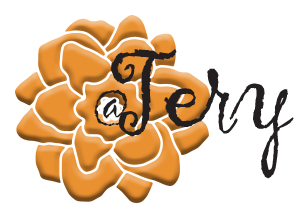You Are the Master of Your Universe!
Tery Spataro
First published on Institute of Ethics and Emerging Technologies, Jan 15, 2015
If you attended CES 2015, you probably found it was stuffed with the excitement of connected devices, homes, cars, robots and even drones! While record numbers of attendees embarked on CES 2015, I observed every few seconds Twitter buzzing with enthusiasm and wonder for automating routines and tasks will improve our lives. This year’s conference let us in on what is and what will be our future, – at least our future for the next few years. My observations cause me to conclude:
This is the year the CONNECTION is made between human reliance on smart devices!
Recalling 16 years ago a story I told with great excitement:
 “My refrigerator lets my smart-phone know I’m out of milk and my car responds by mapping to the nearest store. When I arrive at the store it’s not milk waiting to be picked up – it is soy milk. Believe it or not, my toilet had a say in the matter.” ~ Tery Spataro, SIME Stockholm, 1999.
“My refrigerator lets my smart-phone know I’m out of milk and my car responds by mapping to the nearest store. When I arrive at the store it’s not milk waiting to be picked up – it is soy milk. Believe it or not, my toilet had a say in the matter.” ~ Tery Spataro, SIME Stockholm, 1999.
And now in the review of my story, I am rethinking the mean of the connection between being human and our devices.
We at the beginning of taking control of our smartphones to control our smart objects, changing our homes and workspaces so that we are surrounded by smartness. The smarter objects impact our routines and environments, and in some cases modifying our physiology, bringing us to a point where we will begin to relax and rely on these smarter objects.
Are we really the masters of our universe?
The behavior we are adopting with our smart devices is the assimilation period, during this time we adjust and get comfortable with giving commands to all the “smart things” in our lives. These commands help the smart objects learn, understand our needs, and eventually automate routine decisions, adapting these decisions about our life, who we are, and modifying who we may be or become.
 Last year I interviewed Chris Dancy, the most connected human on earth. I was fascinated by Chris’s use of connected devices and all the data these devices gathered to quantify his biology. He uses this data to modify his behavior for things he desires to change. As devices he is using are better designed, he will no longer have to desire what behavior will need to be modified – his devices will alter to do that for him.
Last year I interviewed Chris Dancy, the most connected human on earth. I was fascinated by Chris’s use of connected devices and all the data these devices gathered to quantify his biology. He uses this data to modify his behavior for things he desires to change. As devices he is using are better designed, he will no longer have to desire what behavior will need to be modified – his devices will alter to do that for him.
Stimulated by CES 2015, I had a conversation with Eric Kingsbury and Melanie Swan, about the idea of free will. Melanie concluded that once our connected lives connect our biology to our smart objects the refrigerator door may lock when we want something that is not good for us to eat. When the refrigerator and toilet may become so smart that we will no longer need medical care. Smart things will remove our need to be overwhelmed by too many choices. The “Paradox of choice” is a psychological concept that Barry Schwartz explores and questions why more is less. When we go beyond our fishbowl and it becomes too big, we feel lost in the ocean. The paradox of choice will become less ominous with the training of our personal devices, which will automate our routine decisions, making our lives easier and less boring, and giving us more time to enjoy life.
 I am not convinced that I want to give up my need to vacuum, no matter how beautifully designed the robotic vacuum is, I prefer and find pleasure in pushing the vacuum back and forward, while doing so I find the time I rethink my thoughts.
I am not convinced that I want to give up my need to vacuum, no matter how beautifully designed the robotic vacuum is, I prefer and find pleasure in pushing the vacuum back and forward, while doing so I find the time I rethink my thoughts.
While I pondered these thoughts, I remembered a conversation among my Millennial coworkers, who debate, “Which is smarter the smart coffee maker or the smartwatch that gives commands to the coffee maker?” This conversation chilled me – the idea of human input did not occur to them.
Rick Searle examines the idea of intelligent devices, automation, and robots – destined to take over for humans. His essay, “2040’s America will be like 1840’s Britain, with Robots?”, provides a breakdown of Tyler Cowen’s book “Average is Over”. Searle’s analysis of Cowen is thought-provoking.
In this statement, Searle is referencing Cowen’s comment on freestyle chess – the uses of a computer chess program to examine the moves of another player.
The economic “games” of the future, are those human beings who are most willing to defer to the decisions of the machine. I find this conclusion more than a little chilling given we’re talking about real people here rather than Knight or Pawns, but Cowen seems to think it just common sense.
To think we will be reduced to pawns scrabbling to the commands of intelligent machines, but at that point, we may not realize that the machine is giving us a command –in the future – this may be the way life is.
 Cowen also admits that the rise of AI might mean the world actually gets “dumber” our interactions with our environment simplified to foster smooth integration with machines and compressed to meet their limits. In his vision, intelligent machines will revolutionize everything from medicine to education to business management and negotiation to love.
Cowen also admits that the rise of AI might mean the world actually gets “dumber” our interactions with our environment simplified to foster smooth integration with machines and compressed to meet their limits. In his vision, intelligent machines will revolutionize everything from medicine to education to business management and negotiation to love.
The human beings who will best thrive in this new environment will be those whose work best complements that of intelligent machines, and this will be the case all the way from the factory floor to the classroom. Intelligent machines should improve human judgment in areas such as medical diagnostics and would even replace judges in the courtroom if we are ever willing to take the constitutional plunge. Teachers will go from educators to “coaches” as intelligent machines allow individualized instruction, but education will still require a human touch when it comes to motivating students.
…There is one area, however, where Cowen thinks you might find refuge if machines just aren’t your thing-marketing. Indeed, he sees marketing as one of the major growth areas in the new otherwise increasingly post-human economy.
Cowen’s economic theory will render human intelligence and the paradox of choice meaningless. For every action, there will be a reaction. As we become more intertwined with transhumanism, I also observe the emergence of enclaves to counterbalance machine living with our need to reconnect with being human and earth…I am a hopeful optimist and marketer who believes in our humanity.
Let’s welcome 2015 by thinking critically about what we put into this world today, and the influence it will have on our not so distant future.

